20 Dec2016
By JTE Insider
Have you seen the JTE Insider blog managed by the Journal of Teacher Education (JTE) editorial team? Check out the latest author interview below.
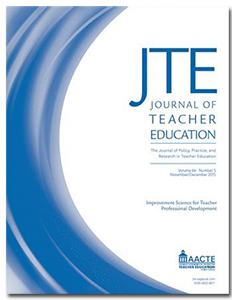
This interview features insights from the JTE article, “Facilitating Teacher Learning When Using Different Representations of Practice,” written by Gloriana González, Jason Deal, and Lisa Skultety of the University of Illinois at Urbana-Champaign. The article is featured in the November/December issue of JTE; you can read the article by going to this link.
19 Dec2016
By Brigid Brennan
The clinical models promoted by the Bank Street Sustainable Funding Project are among the high-quality formats for teacher preparation being studied by AACTE’s Clinical Practice Commission. The study described in this article is not officially connected with AACTE or the Clinical Practice Commission.
The Sustainable Funding Project (SFP) at Bank Street College of Education (NY) seeks educator preparation leaders to participate in a study of clinically rich preparation programs.
Educators agree that sustained preservice clinical practice is essential to ensure teachers enter the classroom well-situated for success. SFP studies how to enable all aspiring teachers to enter the profession through affordable, high-quality programs—programs that include yearlong clinical experiences for teacher candidates—so that every teacher is prepared for the demands of the 21st-century classroom.
15 Dec2016
By Sharon Robinson
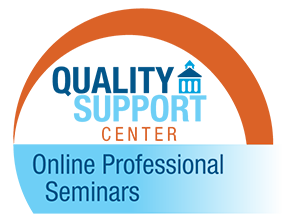
I am excited to announce AACTE’s plans to enhance the online professional seminars offered through our Quality Support Center. Thanks to a new partnership with FutureLearn, a global leader in online learning, our short courses on quality assurance topics will relaunch in 2017 with clearer presentations, better graphics, and a broader peer community.
AACTE originally developed the series of six courses in 2015 in response to your request for affordable and widely accessible training on how to use data wisely, build evidence for state and national program reviews, and address other quality concerns. Hundreds of you have already taken at least one of these courses, and your enthusiasm and valuable feedback informed our decision to ramp up the offerings. In short, we are engaging in our own continuous improvement!
14 Dec2016
By Matthew Wales

AACTE will host its third annual Job and Information Fair during the 69th Annual Meeting at the Tampa Convention Center in Tampa, Florida. Promote your program or organization for just $150!
The event will be held Friday, March 3, 1:15 – 3:15 p.m. in the Conference Community Center and is open to all Annual Meeting attendees. Tables will be available in two areas:
13 Dec2016
By Deborah Koolbeck
At the end of November, the U.S. Department of Education released its final rule for regulations on accountability, state plans, and data reporting for the Every Student Succeeds Act (ESSA). Critical for educator preparation is the deadline set for states to submit their consolidated state plans (which includes requirements for Title II funds). States can submit their consolidated state plans by either April 3 or September 18, 2017.
The consolidated state plan is required to be created in consultation with key stakeholders. While educator preparation is not listed as a required stakeholder, institutions of higher education are required at the table. As your state works to develop its plan, this is an excellent opportunity to engage and make your voice heard!
13 Dec2016
By Deborah Koolbeck
As President-Elect Trump’s cabinet and adviser selections capture the top news headlines, there is a lot more going on in the transition between presidential administrations.
It’s a rather complicated change that unfolds over a longer period of time than you might expect. While Congress has promised to move quickly on the cabinet-level confirmation process, it will take several months to get these positions confirmed. In addition, many positions will need to be filled – over 8,000 or so – that are known as noncompetitive appointment, some requiring U.S. Senate confirmation. These positions can be found in what is known as the “Plum Book.”
13 Dec2016
By Angela Maynard Sewall
As the fall academic semester ends and we turn to planning and early implementation for the next term, now is a prime time to assess what our programs have accomplished and the scope of work that lies ahead. One way to “self-check” is to consider peers’ approaches as well as expert advice to help inform our work – and a convenient opportunity to do so is presented in the archived webinars in the AACTE Resource Library.
New standards are emerging, states are reassessing their foci and processes in light of the new Elementary and Secondary Education Act, major transitions are pending in the Department of Education and elsewhere, and the call for evaluation of outcomes rather than inputs only increases. These topics and others are among the lessons of recent AACTE webinars.
13 Dec2016
By Jori S. Beck and Rosemary Q. Flores
The views expressed in this post do not necessarily reflect the views of AACTE.
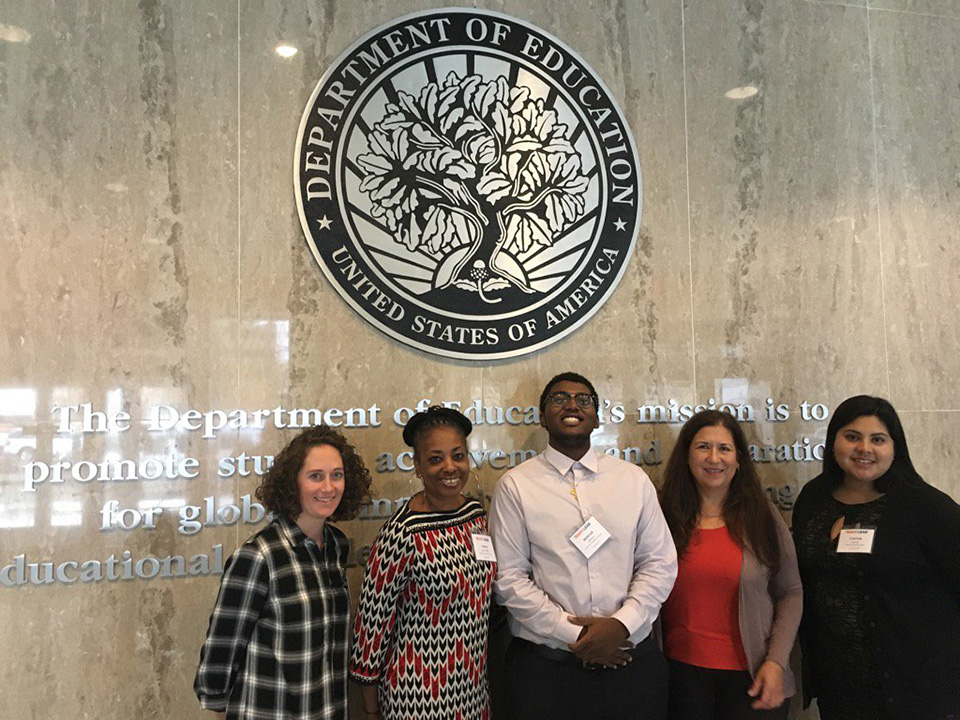
Members of Nevada’s Teach to Lead team at the summit in Washington, DC
We were thrilled to be accepted to participate in the first-ever topical Teach to Lead Summit on Teacher Preparation, held November 2-4 in Washington, DC. Our team worked on a state-funded project that focuses on recruiting high school and undeclared college students of color to education called Abriendo Caminos: Opening Pathways for Students of Color to the Teaching Profession. Our participants included one active teacher, Cynthia Chavez; one undergraduate preservice teacher, Marcus Jackson; a doctoral student and assistant professor, Tonya Walls; and the two of us: Rosemary Q. Flores, a family engagement specialist, and Jori Beck, a teacher preparation representative. The purpose of attending the summit was to further develop our project, and we were provided with ample opportunities from both internal and external critical friends for this work.
13 Dec2016
By Diana Rogers-Adkinson
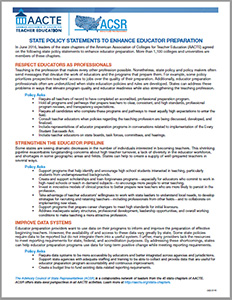
In August, the Advisory Council of State Representatives (ACSR), the governing body of AACTE’s state chapters, released a set of state policy statements to enhance educator preparation. The statements represent the priorities of more than 1,100 educator preparation providers nationwide. AACTE created a customizable template in which state chapters can adapt the statements to meet their state and local needs.
The Missouri Association of Colleges for Teacher Education (MACTE) has been working on tools to advance our message with the state legislature and other key stakeholders. One of our newest assets is the ACSR State Policy Statements, which we adapted by adding a statement on our membership. MACTE has 100% participation among the state’s institutions of higher education that support educator preparation. We felt it was critical to illustrate that we are the collective voice of educator preparation in Missouri.
12 Dec2016
By JTE Insider
Have you seen the JTE Insider blog managed by the Journal of Teacher Education (JTE) editorial team? You’ll find recent podcast interviews with Kevin Kumashiro, discussing how the field has changed since the publication of his 2010 article “Seeing the Bigger Picture: Troubling Movements to End Teacher Education,” and with Noelle Paufler, author of “Preparing Teachers for Educational Renewal Within Current Contexts of Accountability: Reflecting Upon John Goodlad’s Twenty Postulates.” Meanwhile, check out the latest author interview below.

This interview features insights from the JTE article “Riding la Bestiá: Preservice Teachers’ Responses to Documentary Counter-Stories of U.S. Immigration,” written by Lisa Brown Buchanan (LBB) and Jeremy Hilburn (JH). You can find this article in the November/December of JTE through this link.
08 Dec2016
By Zachary VanHouten
Today, the National Council on Teacher Quality (NCTQ) released its latest installment in the Teacher Prep Review, “Landscape in Teacher Preparation: Undergraduate Elementary.” To those familiar with previous versions of the Review, NCTQ is publishing with a noticeably different approach this time – instead of one all-encompassing review of programs, NCTQ has chosen to release reports in five segments:
07 Dec2016
By Jerrica Thurman

The 2017 AACTE Annual Meeting in Tampa is an opportunity for you to not only invest in your own professional development but also come away feeling both energized and rested. With its warm climate, sunny days, palm trees, and beautiful beaches, Florida is a great place to learn, connect, and relax in March.
This year, AACTE has four host hotels located just steps away from the Tampa Convention Center (TCC):
06 Dec2016
By Daina Lujan, Eurania Isabel Lopez, Judith Munter and Timothy Weekes
California, like many states in the nation, faces a critical shortage of teachers. As California recovers from the Great Recession, teacher hiring needs have steadily increased from a recent low of 10,360 in 2011-2012 to 21,482 in 2015-2016. During the same period, the number of new credentials issued has decreased to a low of fewer than 14,000 candidates in the 2014-2015 school year. This reduction in productivity is reflective of the downward trend in enrollment in teacher preparation programs.

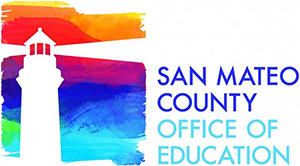
06 Dec2016
By Zachary VanHouten and Aaron Goldstein
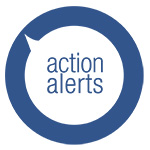
A recording of the November webinar “Advocacy at Your Fingertips: A Review of the New AACTE Advocacy Center” is now available in AACTE’s Resource Library. Viewers will experience a walkthrough of the center’s contents – highlighting specific federal and state resources available to amplify the advocacy skills of AACTE members.
06 Dec2016
By John E. Clark
The views expressed in this article do not necessarily reflect the views of AACTE.
I’m a high school teacher in Florida. I entered the profession through an alternative certification route after completing a 20+ year career in telecommunications. Beyond my standard college classes, my classroom-based preparation consisted of only 10 days of observation along with the creation and delivery of two practice lessons. I graduated as “highly qualified” and was hired immediately as a science teacher at the local teacher job fair.
If I were entering the profession now, especially coming from the business world, I would want a more effective teacher preparation experience than the one I had 10 years ago. Many experienced educators concur. Hope Street Group’s On Deck: Preparing the Next Generation of Teachers (a report released this spring) was the first study that compiled data collected by teachers from classroom teachers regarding their professional preparation. Along with 17 other National Teacher Fellows, I conducted this peer research, sourcing educators of all tenures who were certified in 49 states plus the District of Columbia. Amid several interesting findings in On Deck, two particularly resonated with me as I also reflect on “what I wish I’d learned then.”














